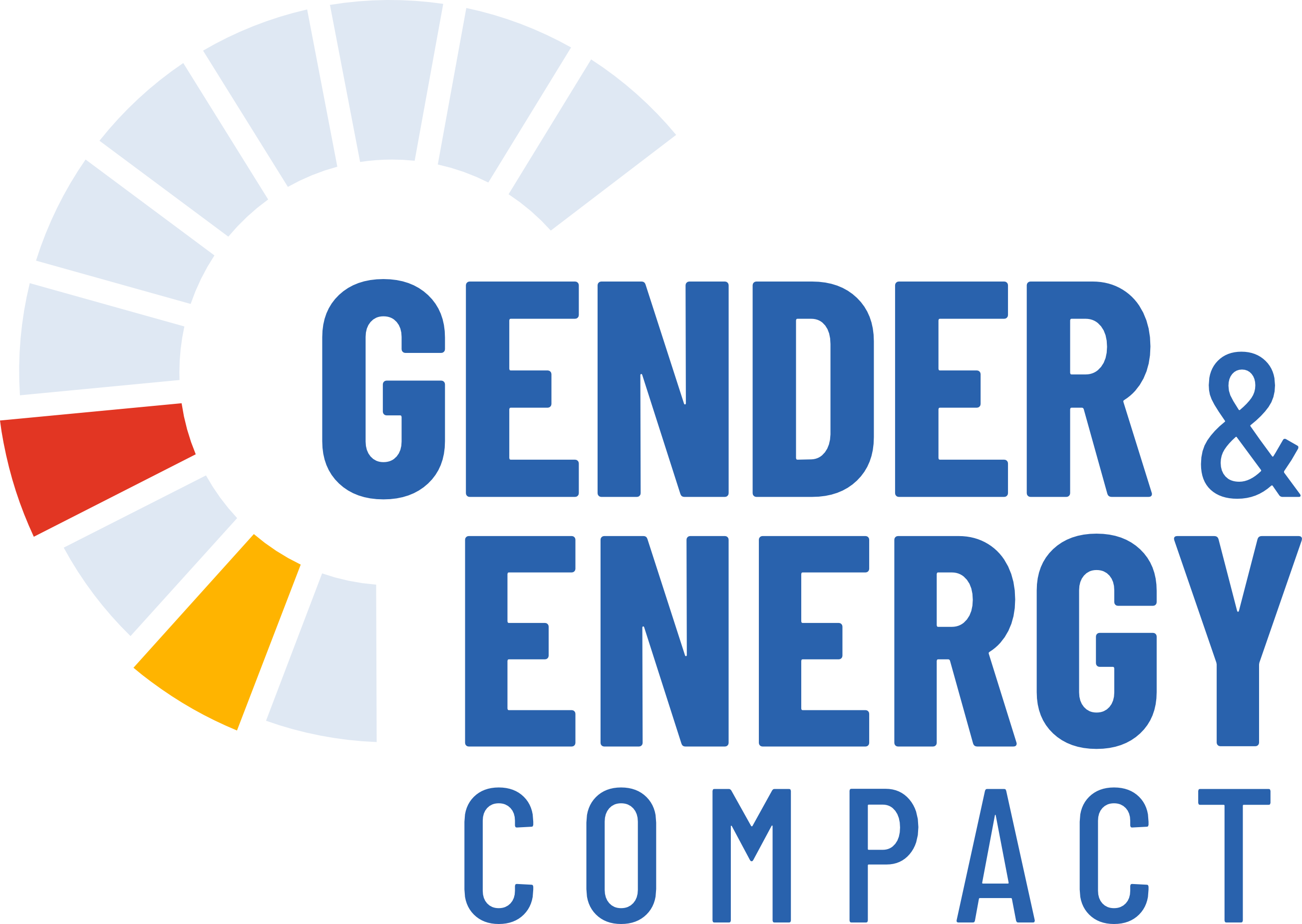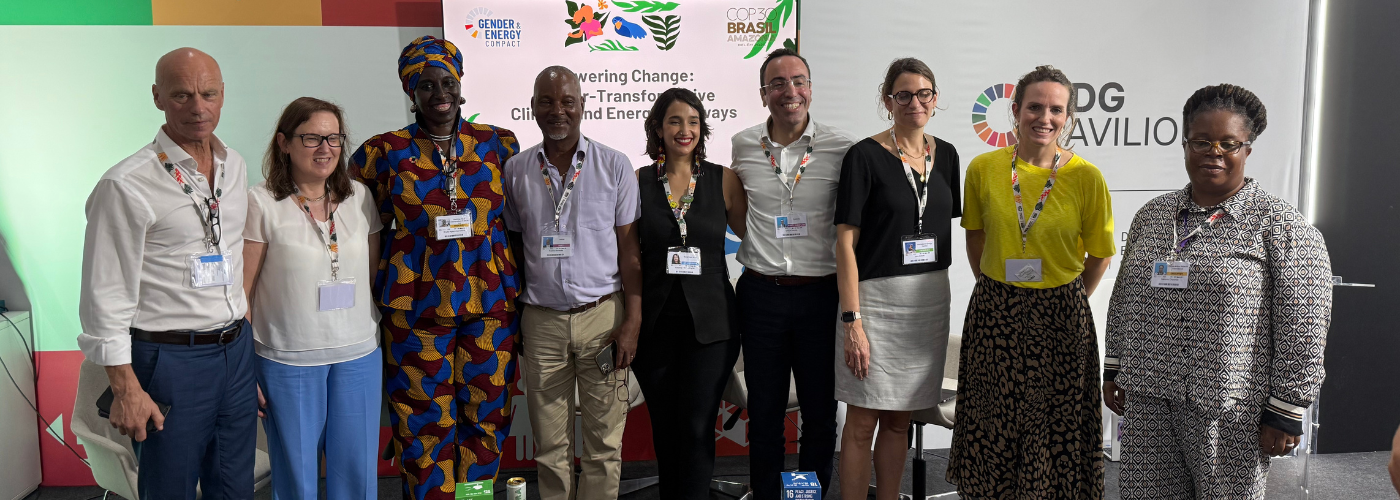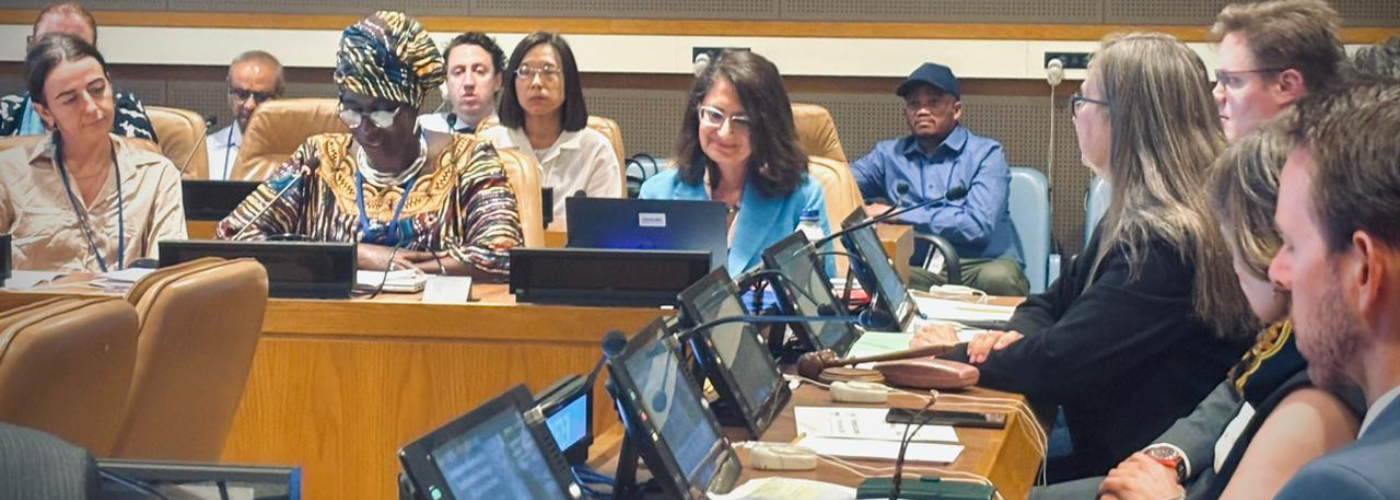On Gender Day at COP29, the Gender and Energy Compact co-convenors and signatories organized a series of side events and dialogues on women’s empowerment and leadership in the energy transition. Read on for a recap of four vibrant and inspiring events.
The power of finance: Women’s Leadership for a just energy transition
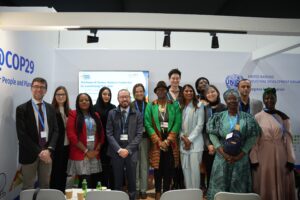
This event was jointly organized by the the Gender and Energy Compact co-convenors, the Energy Community and GCIP, and focused on the crucial role of women in the energy workforce and the financial mechanisms that support their inclusion. Mr. Riccardo Savigliano, Chief of the Energy Systems and Industrial Decarbonization Unit at UNIDO, moderated the event, emphasizing the importance of integrating gender perspectives into energy and climate strategies. He stresses that UNIDO ‘believes that women must play a central role in shaping a sustainable energy future. It is our collective responsibility to ensure that their voices are heard, and their contributions are recognized.’
Mr. Sushil Pacharya, Joint Secretary at the Ministry of Energy, Water Resources, and Irrigation in Nepal, provided welcome remarks, highlighting the need for gender-responsive financing to empower women entrepreneurs in clean energy and cleantech. The keynote address by H.R.H. Dr. h.c. Princess Abze Djigma from Burkina Faso underscored the barriers women face in accessing finance and leadership roles in the energy sector.
The session included two fireside chats. The first featured Ms. Iman Ustadi from the UAE Climate Change Special Envoy, Ms. Camilla Roman from the International Labour Organization, and Mr. Luca Lo Re from the International Energy Agency and was dedicated to integrating gender equality into national energy policies and the UNFCCC Just Transition Work Programme. “One key aspect of people-centred clean energy transitions the IEA takes very seriously, is gender equality. Women make up less than 20% of the global energy workforce today. We believe that the shift to clean energy represents a major opportunity to ensure that the energy workforce of tomorrow is more inclusive, gender-balanced, and diverse. This is a major focus of our work.” stated Mr. Luca Lo Re.
The speakers emphasized the need for targeted financial resources and inclusive policies to support women-led initiatives.
The second fireside chat focused on unlocking finance for women entrepreneurs, with insights from Ms. Priya Thachad, Ms. Jacquelyn Francis, and Ms. Kirsten Dunlop. They shared successful inclusive financing models and strategies to overcome barriers faced by women in the energy and climate innovation sectors.
The session was closed by Ms. Rosemary Idem from SEforAll.
The International Energy Agency’s (IEA) Global Commission on People-Centred Clean Energy Transitions has released a report on “Designing for Fairness”. This report examines how clean energy policies can be formulated to promote greater affordability, equitable distribution of benefits and costs, and enhanced equity within energy systems. The document also features the proactive work of the Gender and Energy Compact, which has acted as a catalyst in reinforcing efforts toward gender equality and women’s empowerment in the energy sector.
Women Leading the Change: Advocacy for a Just Energy Transition
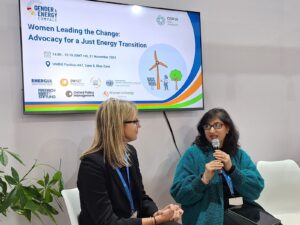
Co-organized with the Friedrich-Ebert-Stiftung, Women in Energy Pakistan, and Oxford Policy Management, this event highlighted the critical role of advocacy and activism in ensuring women’s inclusion in climate and energy transitions. Moderated by Mr. Alessio Brina from UNIDO, the session emphasized gender inclusion in climate action.
Sadia Satti from the Sustainable Development Policy Institute in Pakistan discussed the different impacts of climate change on men and women and the need for a gender-responsive approach. Dina Kisbi of Friedrich Ebert Stiftung noted, “The energy sector remains a male-dominated field across the world, and this is no different in the MENA region. Despite MENA having 50% of female graduates in STEM fields, only 10 percent of the 400,000 jobs projected in the green transition are expected to target women.” She stressed the importance of infrastructure that encourages women’s participation.
Maha Kamal, Co-Chair of Women in Energy Pakistan, emphasized the importance of gender inclusion in addressing the climate crisis and the need for advocacy and networks. “Women in Energy was a strategic partner of the World Bank’s WePOWER, promoting women’s leadership in the energy sector through a five-pillar approach,” she said.
Katherine Cooke from Oxford Policy Management highlighted that while climate change disproportionately impacts women, they are strong advocates for change. She shared examples of gender-responsive initiatives and noted, “To earn credibility you don’t need to be a man, but instead focus on technical skills, confidence, and the ability to present technically robust and concise information.”
The session concluded with reflections from Ms. Sandra Leyva, a WISER Pioneer, who encouraged continued advocacy for women’s inclusion in the energy sector. The event ended with a call to action for ensuring women are at the forefront of the just energy transition.
Empowering Young Women: Innovative Energy Solutions for our Future Generation
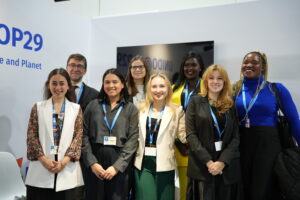
The third event, organized in collaboration with SDG7 Youth Constituency, Student Energy and the Global Network – Regional Sustainable Energy Centres highlighted the crucial role of young women in the energy sector and the innovative solutions they bring. Ms. Milena Megre, Co-Chair of T20 Brazil and SDG7YC, moderated the session, emphasizing the importance of including young women’s voices in energy decision-making processes.
Ms. Bianca Garvin, COP29 Co-Coordinator for YOUNGO, set the context by discussing the need for multi-stakeholder engagement and localized funding to enhance women’s roles in the energy transition. The session featured a fishbowl discussion with speakers such as Ms. Asara Bullen Panchol from South Sudan, Shalom Iboh, Founder of RenewWatts Technologies, and Ms. Paola Acevedo, Communications Director at Sustenta Honduras. They shared insights on the challenges young women face in the energy sector and their success stories in renewable energy projects. Asara highlighted that ‘Cultural norms and beliefs have made women and girls vulnerable to climate change, in an underdeveloped country like South Sudan, women are seen as to luck abilities, good judgement, are poor in decision making and these are the very reasons why women are not seen in political spaces, having the businesses and innovations supported. Therefore, institutions with gender equality or equity as their core mandate, need to empower women and girls so that the future generation do not go through what women of previous generations have gone through.’
Key discussions examined structural and social barriers, the role of young women in technological innovations, and the importance of financial opportunities to expand their energy projects. The session also addressed the need for policies and programs to overcome these obstacles and support young women’s leadership in the energy transition.
The event concluded with an interactive Q&A session and reflections from participants, generating actionable recommendations to create a more inclusive and equitable energy transition. Mr. Riccardo Savigliano from UNIDO closed the session, encouraging continued advocacy for the inclusion of young women in the energy sector.
Towards a Gender-Just Energy Transition: Leveraging NDCs to Advance Gender Inclusion in the Energy Transition
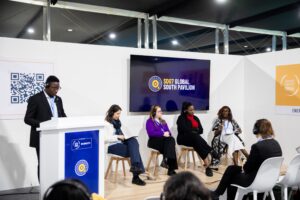
Co-hosted by the Gender & Energy Compact, Ministry of Foreign Affairs of Iceland, and Sustainable Energy for All, this event focused on how countries can make their Nationally Determined Contributions (NDCs) more gender-responsive to address gender gaps in climate and energy policies. Moderated by Joshua Alade, Founder of the Nigeria Youth SDGs Network, the event explored actionable strategies for using NDCs to drive a just energy transition.
In his opening remarks, Hugo Thomas Salamanca Dejour, UNIDO Steel Breakthrough Facilitator, stressed the importance of moving beyond mere references to gender in NDCs, calling for substantive action and implementation. Hon. María Erla Marelsdóttir, Climate Ambassador of Iceland, further emphasized that ‘gender equality is both a cross-cutting and specific issue’ that is deeply connected to the energy transition. She highlighted the need for collaboration and solidarity both in Iceland and globally to achieve progress on gender equality.
The panel discussion featured key insights from leading experts. Amanda McKee, Director of Knowledge and Learning at the NDC Partnership, shared how countries are using the NDCs 3.0 as an opportunity to enhance inclusivity in the process of setting climate commitments, with support from tools like the NDCs 3.0 Navigator, developed in collaboration with the UNFCCC Secretariat. Bridget Burns, Executive Director of the Women’s Environment and Development Organization (WEDO), underscored the critical role of ‘consultation and consent’ in the NDC development process, emphasizing the need for inclusive and accountable practices. Chikondi Chabvuta, Co-Coordinator on Gender for the Least Developed Countries Group, called for ‘strengthening institutional coordination’ between Ministries of Energy and Gender, as well as using gender analysis and data to inform NDCs. She noted that ‘NDCs must focus on women’s participation tracking and having data on women’s priorities in the energy transition.’ Hellen Wanjohi, Urban Climate and Development Lead at WRI Africa, highlighted the need for a ‘whole-of-community approach’ to ensure inclusivity, stressing that ‘a gender-responsive pathway is the only way to achieve the strong benefits of sustainable development while adapting and responding to climate change.’
Key takeaways from the session included the need for robust disaggregated data, gender analysis, and a whole-of-government and whole-of-community approach to drive systemic change. Panellists also emphasized the importance of moving from policy language to tangible action, with sufficient financing and capacity-building to support the implementation of gender-responsive NDCs. The event concluded with an interactive Q&A session and reflections from participants, generating actionable recommendations for a more inclusive and equitable energy transition. The session was closed by Rosemary Idem, Programme Manager of Gender & Youth at SEforALL.
